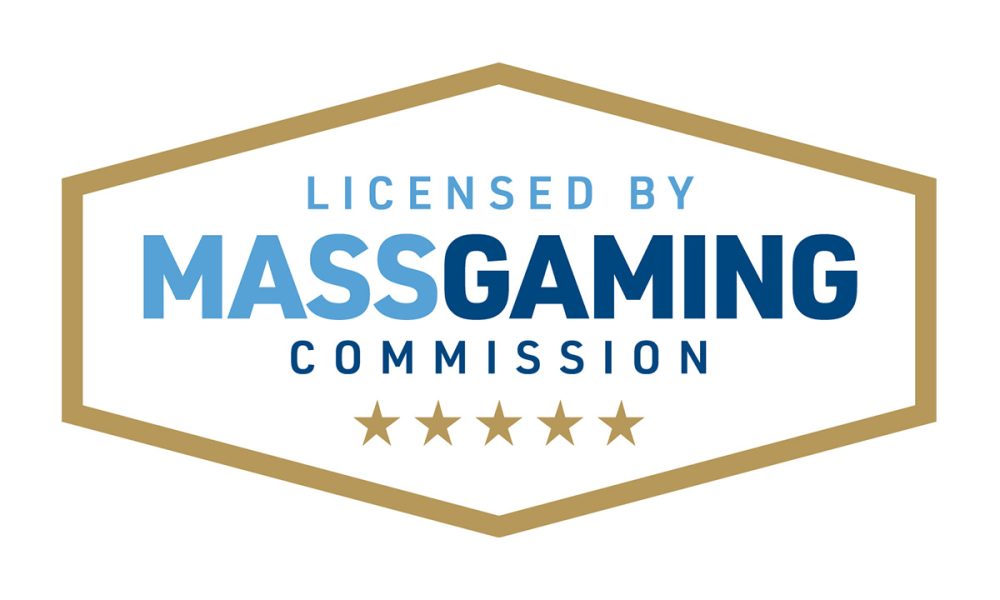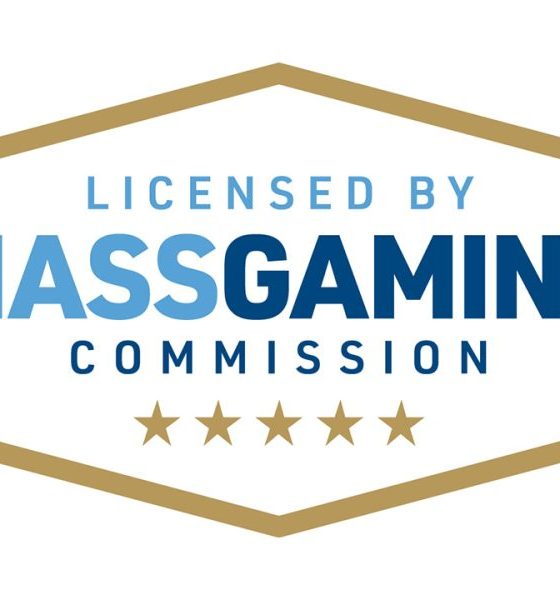

Compliance Updates
Massachusetts Gaming Commission Launches Official Seal of Approval
The Massachusetts Gaming Commission (MGC) has recently developed and adopted an official seal of approval, which all licensed sports betting operators in the state are now required to display on their digital platforms. The introduction of this seal represents a significant step in the MGC’s ongoing efforts to promote responsible and regulated gaming within the Commonwealth.
The seal is intended to serve as a clear signal to consumers that they are accessing a sports betting platform licensed and regulated by the MGC. By prominently featuring this seal, customers can easily distinguish between legal, licensed operators and unsafe, illegal alternatives.
“The MGC has spent considerable efforts ensuring that the operators licensed in the Commonwealth share our values and are committed to consumer protections and responsible gaming. Massachusetts residents who choose to gamble on sports deserve to know their data, personal and financial information are protected, and only the legal marketplace offers those protections. By locating this seal, users will be able to easily identify a legal sportsbook from an illegal operator,” said Commissioner Eileen O’Brien.
Offshore and unlicensed sports betting sites have been accessible to patrons across the US for years. However, with the legalization of sports wagering in Massachusetts, these offshore operators may attempt to present themselves as legitimate. Yet, they are not licensed by any state jurisdiction and do not comply with the same regulations and consumer protection standards as the legal market.
The risks of using these illegal platforms extend beyond potential data breaches or financial losses. Unlicensed operators may refuse to honor winning bets, leaving consumers with little to no recourse. Illegal gambling activities are also often tied to other serious crimes. The Massachusetts Attorney General’s Office has issued cease-and-desist orders to several major illicit operators. It will continue to monitor and take action against such unlawful activities in coordination with the MGC. The Commission would urge anyone looking for more information on illegal platforms to visit the website of the American Gaming Association.
This newly adopted seal serves as a visual reminder of the regulations in Massachusetts’s legal sports betting market. It enhances consumer protection and builds trust with members of the public who choose to engage in sports betting. By identifying the official MGC seal, customers can have peace of mind knowing they are accessing a fully licensed platform compliant with the Commonwealth’s laws and regulations.
Compliance Updates
CT Interactive grows its certified portfolio in Romania

CT Interactive is strengthening its presence in Romania’s regulated iGaming market by certifying 20 new games, bringing its total portfolio in the country to 101 titles. This is a significant achievement in the company’s European growth strategy.
Among the new certified releases are fan favorites such as Lucky Clover 10, the latest addition to the beloved Clover series featuring vintage-inspired graphics and nostalgic design elements, and 20 Mega Star, a classic fruit-themed slot that combines familiar gameplay with modern visuals to keep players engaged. Both titles have already proven their success across multiple international markets with strong player engagement.
Additionally, CT Interactive is launching its new Buy Bonus product line in the Romanian market. This exciting lineup includes Doctor Winstein Buy Bonus, Duck of Luck Buy Bonus, Fruits & Sweets Buy Bonus, Nanook the White Ghost Buy Bonus, and Hyper Cuber Buy Bonus — all offering thrilling bonus features and enhanced gameplay tailored to local player preferences.
“Certification in Romania is an important part of our European growth strategy,” said Martin Ivanov, COO of CT Interactive. “This expansion not only strengthens our presence but also enables us to offer a diverse and premium range of content to the regulated Romanian market.”
With these new certifications, CT Interactive continues to be a trusted provider of engaging gaming content, offering Romanian operators a broad range of advanced titles fully aligned with local regulatory standards.
The post CT Interactive grows its certified portfolio in Romania appeared first on European Gaming Industry News.
American Gaming Association
MDC Issues Commentary as U.S. Gambling Enters “Regulatory Reset” Following $148 Billion Wagered

Minimum Deposit Casinos (MDC) has issued an expert commentary on what it calls a “regulatory reset” in the U.S. gambling sector, as lawmakers and regulators respond to explosive growth in consumer betting behavior. According to the American Gaming Association, Americans wagered a record $148 billion on sports in 2024. This surge has sparked new scrutiny from both federal and state-level authorities.
Recent legislative efforts in New York, Louisiana, and Montana have targeted sweepstakes-based casinos and skill-based betting formats. Proposed changes include tighter bet size limits, stricter advertising rules, and licensing reforms aimed at reducing player harm and increasing transparency.
“The regulatory environment is catching up with consumer behavior. There’s growing concern over how online gambling is marketed, accessed, and governed. Areas like responsible gaming, ad targeting, and instant deposits are now being looked at much more critically,” said a spokesperson at MDC.
According to the latest figures from the American Gaming Association, U.S. commercial gaming revenue reached $19.44 billion in Q2 2025, marking a 9.8% increase compared to the same period last year. Online casino gaming accounted for $2.6 billion of that total, reflecting a 32.3% year-over-year jump. The numbers underscore continued momentum for digital platforms even as regulations tighten.
MDC’s commentary urges both players and operators to stay ahead of the curve. As laws evolve, demand is rising for licensed platforms that offer low-deposit access, better responsible gambling tools, and full regulatory compliance.
The post MDC Issues Commentary as U.S. Gambling Enters “Regulatory Reset” Following $148 Billion Wagered appeared first on Gaming and Gambling Industry in the Americas.
Compliance Updates
Dutch Gambling Regulator to Amend its Remote Gambling Licensing Policy Rules

The Dutch Gambling Regulator (KSA) is to amend its Remote Gambling Licensing Policy Rules effective January 1, 2026. This amendment is necessary, in part, because the licenses granted in September 2021 expire on October 1, 2026. Licenses have a term of five years. The amended policy rules impose new obligations on all applicants, but primarily provide guidance on the process for applying for a follow-up license by providers already holding a license.
New requirements apply to all license applicants. For example, applications must include a document explaining how providers plan to inform the KSA (Netherlands Authority for the Protection of Gaming) in a timely manner about important changes to their policies and operations. Applicants must also now include an exit plan explaining how they will reduce their gaming offerings once the license expires.
Furthermore, an important addition has been made regarding reliability: if providers have not complied with final or provisionally enforceable court rulings at the time of their application, their reliability is not beyond doubt. This constitutes grounds for refusing a license. Providers must also now submit a Wwft risk analysis with their application.
A separate application procedure applies to applications for a follow-up license by parties already active on the market. In this procedure, various components will be reassessed, including the addiction prevention policy and the recruitment and advertising policy. A new integration test will be conducted for the control database (CDB) component. They must also meet the new conditions that apply to all applications, as mentioned above.
When opening the online market, the legislature deliberately opted to issue permits with a term of (maximum) five years. By using a fixed-term permit, the legislature intended that the Netherlands Authority for Consumers and Markets (KSA) would consider supervisory experience gained in each application for a subsequent permit. Providers who have made mistakes in the past five years must explain during the application process how they have learned from previous mistakes and how they intend to prevent recurrence. If the KSA finds this explanation insufficient, the permit may be denied or additional conditions and restrictions may be imposed.
The post Dutch Gambling Regulator to Amend its Remote Gambling Licensing Policy Rules appeared first on European Gaming Industry News.
-

 gaming3 years ago
gaming3 years agoODIN by 4Players: Immersive, state-of-the-art in-game audio launches into the next generation of gaming
-
EEG iGaming Directory8 years ago
iSoftBet continues to grow with new release Forest Mania
-
News7 years ago
Softbroke collaborates with Asia Live Tech for the expansion of the service line in the igaming market
-
News7 years ago
Super Bowl LIII: NFL Fans Can Bet on the #1 Sportsbook Review Site Betting-Super-Bowl.com, Providing Free Unbiased and Trusted News, Picks and Predictions
-
iGaming Industry8 years ago
Rick Meitzler appointed to the Indian Gaming Magazine Advisory Board for 2018
-
News7 years ago
REVEALED: Top eSports players set to earn $3.2 million in 2019
-
iGaming Industry8 years ago
French Senator raises Loot Boxes to France’s Gambling Regulator
-
News7 years ago
Exclusive Interview with Miklos Handa (Founder of the email marketing solutions, “MailMike.net”), speaker at Vienna International Gaming Expo 2018








